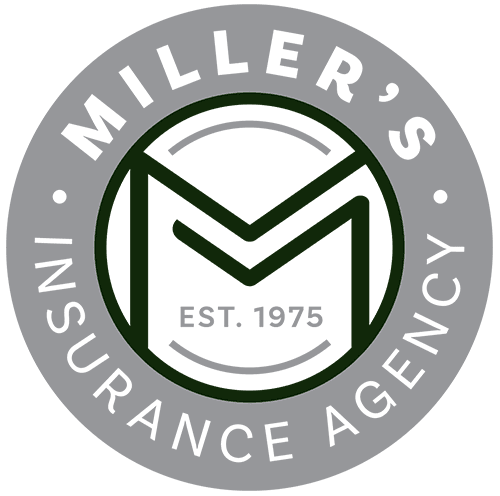Owning and maintaining a boat can be a fun, rewarding experience. If you’re in the market to buy a boat or you’re looking for boat care and maintenance tips as a first-time boat owner, we’re here to help. We’ve covered all the basics to help you before, during and after boating season to protect your investment and everyone on board. From licenses and insurance to maintenance and off-season storage, this boating checklist will make the process easy when you start boating.
Boating Requirements
Every state has different legal requirements surrounding:
- Boating education
- Boat licenses
- Boat registration
- Boat insurance
According to Discoverboating.com, “boating license and education requirements vary by state, but most courses and tests can be completed online.”
You can also register your boat online, but there are mail-in and in-person registration options, too. To register your boat, you’ll need to research the requirements for your state. Most states require proof of purchase such as the title, bill, or sale, and a registration fee.
After you register your boat and secure a boating license (or required boating education in your state), it’s important to protect your investment with boat insurance. The two types of boating insurance are “agreed value” and “actual cash value.” Agreed value boat insurance takes the current value of the boat at the time the insurance policy is written, so there is no depreciation if there is a total loss. This option is more expensive upfront, but depreciation doesn’t impact the coverage.
Actual cash value boat insurance works a bit differently than agreed value. This insurance policy will only cover the cash value of the boat at the time of the total or partial loss. That means depreciation will impact the coverage over time.
Boat insurance policies vary depending on the boat’s length, age, horsepower, and other factors. Contact the watercraft insurance experts at Miller’s Insurance Agency today to learn how we can protect your boat.
Boating Supplies
After you buy a boat and take care of the requirements to start boating legally, you’ll need supplies to get on the water safely for boating season. According to the U.S. Coast Guard, you are required to have the following equipment on board:
- One personal floatation device (PFD), or life jacket, per person on board that fits correctly and can hold their weight
- Throwable floatation devices
- Marine-type fire extinguisher for flammable liquids and gases
- Sound-producing device like a whistle or air horn in case of emergency
- Visual distress signal like a boat flare or floating smoke signal
In addition to the boat safety must haves, it’s good to keep these items on board for added safety and convenience:
- First aid kit
- Sunscreen and bug spray
- Motion sickness pills
- Extra rope and a sharp knife
- Plenty of drinking water
- VHF radio and/or cellphone
- Anchor with line
- Oars or paddles in case of engine trouble
- Large flashlight
- Snorkel mask or goggles to inspect possible boat damage
How to start boating and practice boat safety
Now that you have all the supplies to have a successful boating season, you’re probably eager to get out on the water! Before you do, walk through some boat maintenance steps to ensure the vessel is safe and ready to operate. Follow this boat maintenance checklist every time you use your boat:
- Assess boat’s engine and propeller
- Check the battery
- Wash the hull and deck as necessary
- Check the oil and top off as necessary
- Assess the bilge pump and pump hoses
- Ensure electrical lines are working properly
- Check and top off fluid levels like coolant or power steering fluid
You will also need to get familiar with and practice boat safety with your friends and family who will join you on the water. As the boat owner and operator, it is your responsibility to make sure everyone on board is safe. Go over boating safety basics with your passengers and cater the lesson to activities that you’ll do on the water such as sailing, water sports or fishing. As always, make sure everyone is wearing a personal floatation device.
Boat care and maintenance tips for all seasons
We already went through the boat maintenance checklist you should follow every time you use your boat, but what about ongoing maintenance during and after the season? Just like a car, your boat will need routine maintenance and even new parts to ensure a safe ride every time you’re on the water. Here are some tips for boat care and maintenance during and after boating season.
Boat care during boating season
Your boat will need different types of maintenance after certain hours of use. For example, some experts recommend different steps to take after 20, 50 and 100 hours of boat use for optimal boat maintenance and safety.
When you buy a boat, do your research and talk to experts on your boat type to learn about the appropriate boat maintenance. If you purchase your boat from an individual, talk to them about their boat maintenance practices and what worked for them.
Boat storage and maintenance during the off-season
As a first-time boat owner, your first end-of-season routine is very important for protecting your investment and getting into good boat maintenance habits. Winterizing your boat is essential to protect all the functions of your boat during cooler temperatures and months without use.
Boatplanet.com says boaters can “opt to hire a professional to do their ‘winterization’ for them… but you still need to know what is supposed to be done by the pros, so you can manage the process.”
A marine mechanic can help you prepare your boat for winter. Here are just a few of the things they’ll do to prepare your boat for the off season:
- Fog the engine
- Replace the water impeller
- Remove the battery and put on a marine trickle charger
- Flush the bilge and add antifreeze
- Fill the freshwater system and hot water heater with non-toxic propylene glycol antifreeze
Experts recommend you find a marine mechanic as soon as possible when boating season ends to make sure you secure an appointment for winterization services.
After your boat is ready for the off-season, you need a place to store it. You have many options to choose from, but depending on the year-round weather in your area, some options may be better than others. You can store your boat:
- On your own property in a barn, garage or driveway
- At an indoor storage facility like a warehouse or self-storage unit
- At an outdoor storage location like a covered parking lot or uncovered parking space
There are also more expensive options like private indoor storage units and climate-controlled storage units. Consider the seasonal weather in your area to make the best boat storage decision for your needs.
This article is brought to you by our friends at Grange Insurance. Miller’s would like to extend its gratitude to Grange Insurance for being a wonderful business ally. To learn more boating tips from Grange Insurance, please visit https://www.grangeinsurance.com/tips/boating-checklist. Contact us today to get a Grange Insurance quote.

